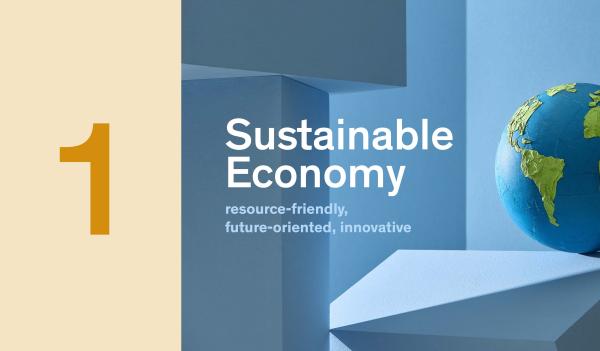Voluntary corporate environmental initiatives
This project examined policy options for democratic policymakers in the Global North (particularly Switzerland) with respect to ‘green’ economic initiatives and activity. Primarily, we focused on public opinion concerning the governance of private-sector contributions to sustainable economy transitions.

Background
Policymakers have many points of intervention and a large arsenal of policy tools at their disposal to reduce the environmental impacts of economic activity. However, how policymakers address the two following questions will likely shape their success. First, how may policymakers deal with the geographic diffusion of environmental impacts via trade and corporate supply chains? Second, to what extent may they restrict the activities of companies in the process to reduce environmental impacts
Aim
We studied the political feasibility of green economy policies aimed at various environmental problems caused by economic activity at every stage of a stylised product life cycle from the cradle (i.e. during production in lower-income countries) via trade to the grave (i.e. during final consumption or disposal). Using Switzerland as a ‘public opinion laboratory’, this project provided in-depth evidence on which levers policymakers (in Switzerland and hopefully elsewhere) may pull on their way to a sustainable economy.
Results
Environmental impacts of trade liberalisation
Our results indicate that trade liberalisation increases the aggregate environmental impacts of goods exported from low-income countries. The magnitude of this process interacts with countries’ political systems. That is, high-income and democratic countries are more likely to ‘off-load’ environmental impacts via trade.
Acceptance of private sector sustainability initiatives
The relevance of democratic institutions at the macro level corroborates our focus on public opinion at the micro level. In that respect, our results show that whether individuals (who are citizens and consumers) perceive the interplay between the private sector and the government as synergistic or not helps explain whether they are willing to support private-sector-led environmental policy initiatives. In the same vein, our results suggest that voluntary environmental action can benefit firms, as citizens are willing to reward it politically (e.g. softer regulatory enforcement).
Acceptance of political governance to increase sustainability
Notwithstanding support for political rewards, overall, citizens support robust government regulation of economic activity, namely in domestic environmental policy areas and the governance of global supply chains. There are several caveats, however. First, citizens are more tolerant towards lenient environmental regulation if it was set via an inclusive decision-making process. Second, our results reveal that, due to the multitude of involved actors and the complexity of the decision-making process, an inclusive policy process can reduce the accountability the public assigns to elected political representatives. Third, while we find that normative signals (e.g. by international organisations) can increase support for sustainable economy regulation, voluntary measures can decrease it if corporate actors commit to external audits and manage to maintain cooperation across sectors.
Implications for research
Our research has paved the way for further inquiry into how political institutions affect international environmental burden shifting at the macro level. At the micro level, our work points to avenues for future research on how citizens trade-off accountability and inclusiveness in environmental policy design. Finally, our most recent study spearheads research on public attitudes in the largest importing countries of the world towards international business and global supply chains.
Implications for practice
Due to the geographic separation of production and consumption, multi-pronged (e.g. both trade and supply chains-related) strategies will be necessary to reduce the negative environmental impacts of economic activity, and notably the global environmental impacts of local/domestic consumption. In that context, we suggest that the sustainability of global supply chains likely will continue to encroach on environmental and economic agendas in the political mainstream. Moreover, our findings indicate that policymakers could leverage public support to push for stronger oversight mandates in hybrid (public-private sector) domestic environmental governance.
Publications
Project leaders
Prof. Dr. Thomas Bernauer
Institute of Science, Technology and Policy,
ETH Zürich


